10 Science Snapshots: KEYS Research Internship
Mentorship with University of Arizona researchers helps these promising Arizona high school students explore their passion of scientific discovery.
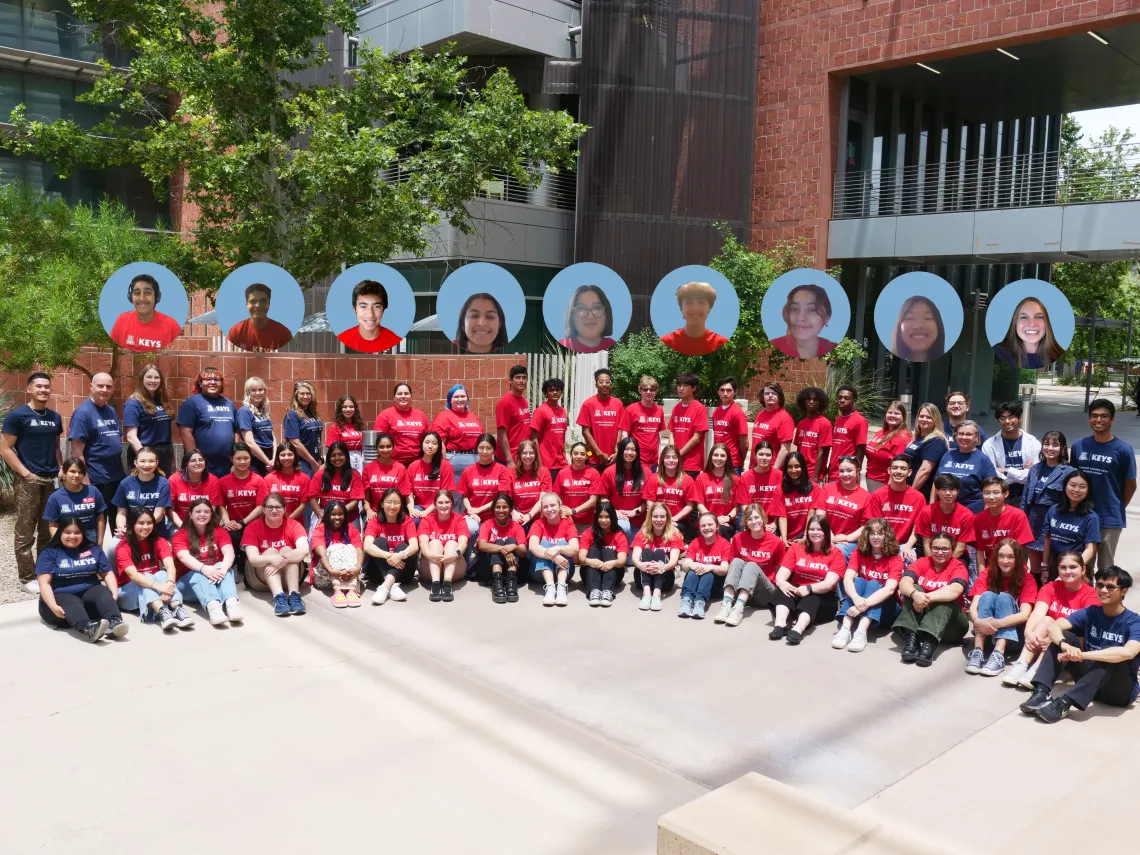
Summer is usually a quieter time for the University of Arizona campus, but not for the BIO5 Institute.
Come early June, bright Arizona high school students arrive for the BIO5 Institute’s Keep Engaging Youth in Science (KEYS) program. In 2023, 56 students from across 37 Arizona high schools participated in the program.
For seven weeks they were immersed in intensive scientific training and real-world projects, both in-person and virtually, under the mentorship of UArizona scientists.
Members of the BIO5 and their labs often host interns, training this next generation of researchers across interdisciplinary sciences. These experiences provide not only mentorship for students, but also bring new perspectives to the labs of many BIO5 members.
These ten science snapshots are examples of 2023 KEYS intern projects in BIO5 member labs.
1. Understanding climate change through bacteria
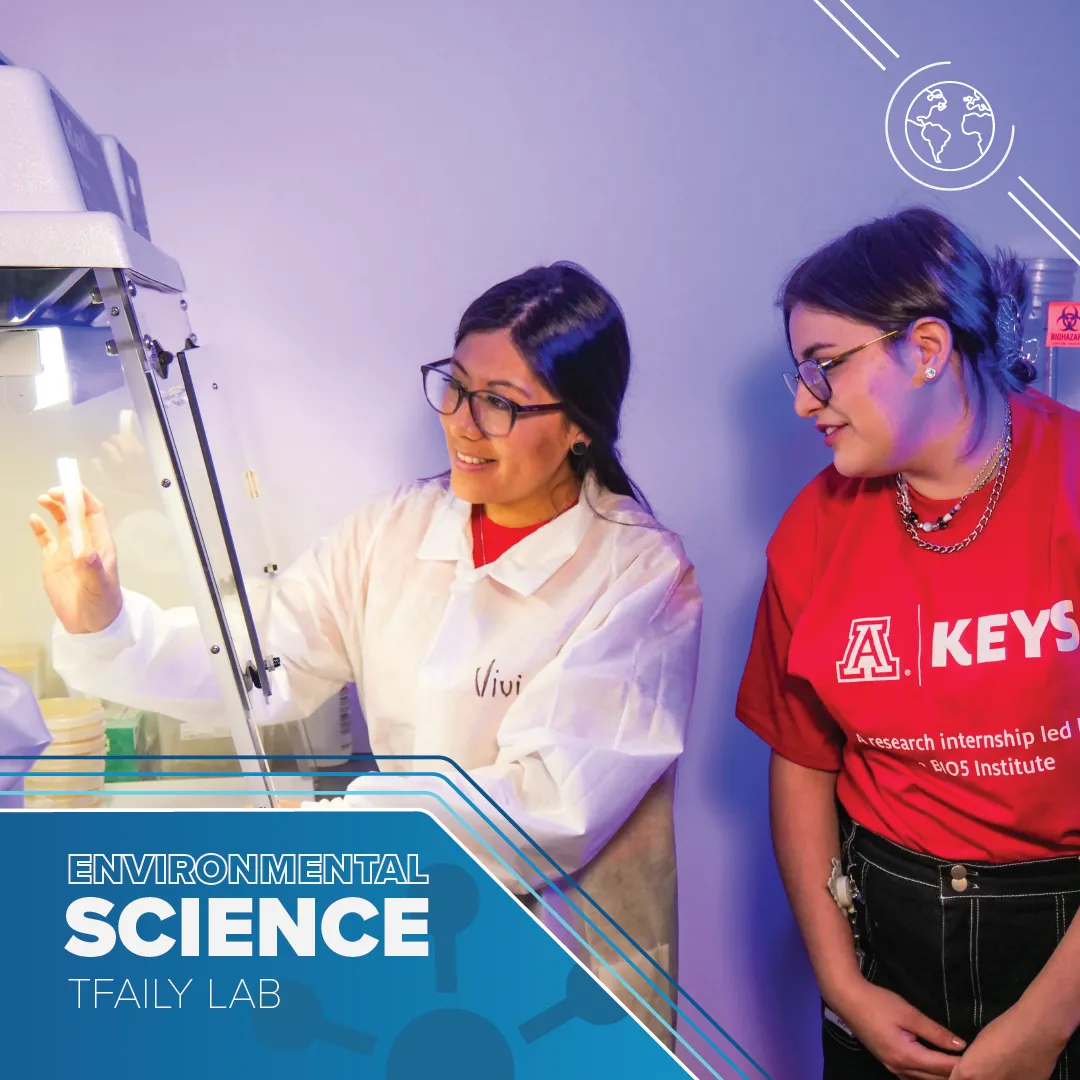
As our climate changes, it's critical to understand how these shifts affect biological systems at the smallest of scales.
One of these shifts will be more precipitation in certain regions of the world. For the lab of Dr. Malak Tfaily, associate professor in the University of Arizona Department of Environmental Science and BIO5 member, that means examining how certain bacteria respond to changes in rainfall.
“We’ve collected and isolated bacteria during the Tucson monsoon season. The next step is to cultivate these bacteria — or grow them in the lab — so we can further study them and how they interact with the environment,” said KEYS mentor Viviana Estefania Freire Zapata (she/her), doctoral student in the Tfaily lab.
Helping her with this next step is Syriana Coronado (they/them), a 2023 KEYS intern excited to work on global problems in a laboratory setting. They will be comparing different kinds of media to see what works best for the collected bacteria.
“I want to impact the world by creating a fix for a problem,” said Syriana.
2. Testing biomedical devices
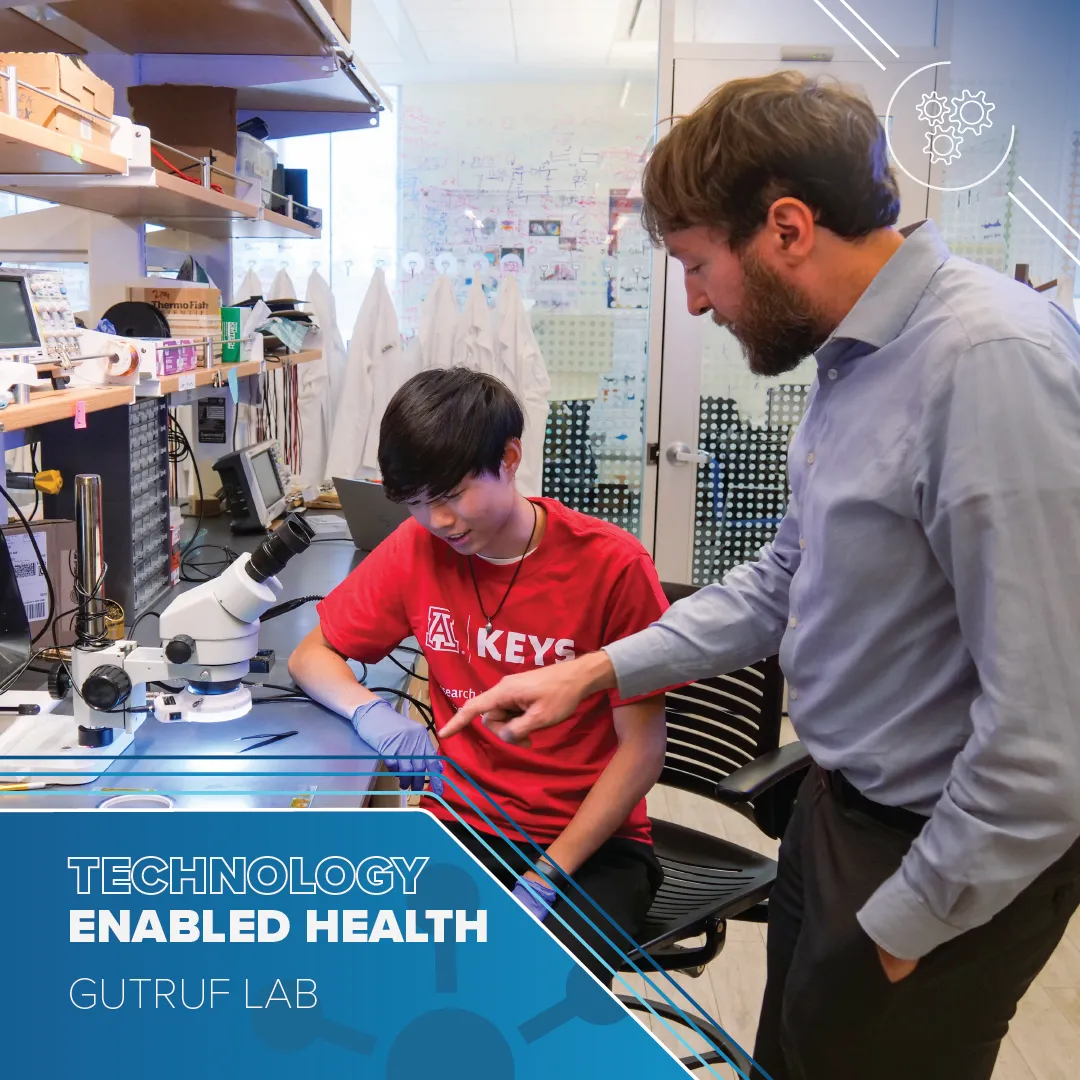
Engineering devices to monitor human health is challenging.
Devices that go inside a human body are even trickier. That’s one of the focuses for the lab of Dr. Philipp Gutruf, assistant professor in the University of Arizona Department of Biomedical Engineering and BIO5 member.
“One of the challenges is to protect the electronics and sensors, since the inside of the human body is especially corrosive,” said KEYS mentor Dr. Gutruf (he/him).
A critical piece of that development is testing the different materials that will encapsulate the electronics. That’s the task of Zachary Wang (he/him), a 2023 KEYS intern interested in a medical career.
“The biomedical projects in this lab are so important because they can benefit people with higher health risks,” said Zachary.
3. Investigating pathogens in food
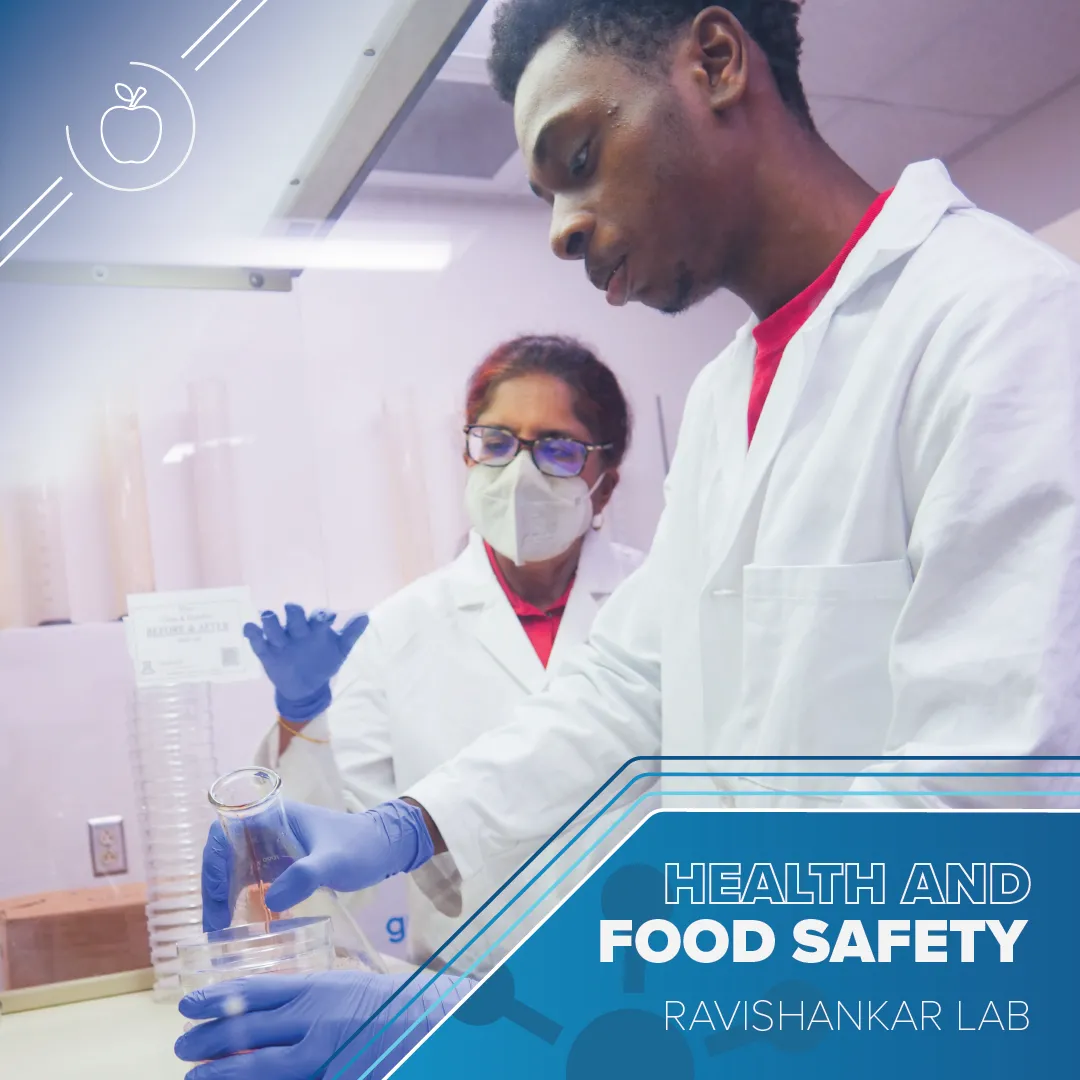
Foodborne illnesses sicken hundreds of thousands of people each year in the United States.
The lab of Dr. Sadhana Ravishankar, professor in the University of Arizona School of Animal and Comparative Biomedical Sciences and BIO5 member, studies how to control different pathogenic bacteria with organic methods.
“Since we know chemical preservatives can be bad for our health, we work with natural, plant-based methods to protect people from foodborne illnesses,” said KEYS mentor Dr. Ravishankar (she/her).
To help reach that goal, KEYS intern Nyreek Thompson (he/him) investigates the antimicrobial activity of plant-based compounds with two major pathogenic bacteria, Salmonella enterica and Listeria monocytogenes.
“I’m interested in organic farming, so I want to learn how we can produce food without unhealthy chemicals,” said Nyreek.
4. Conserving water and saving soil
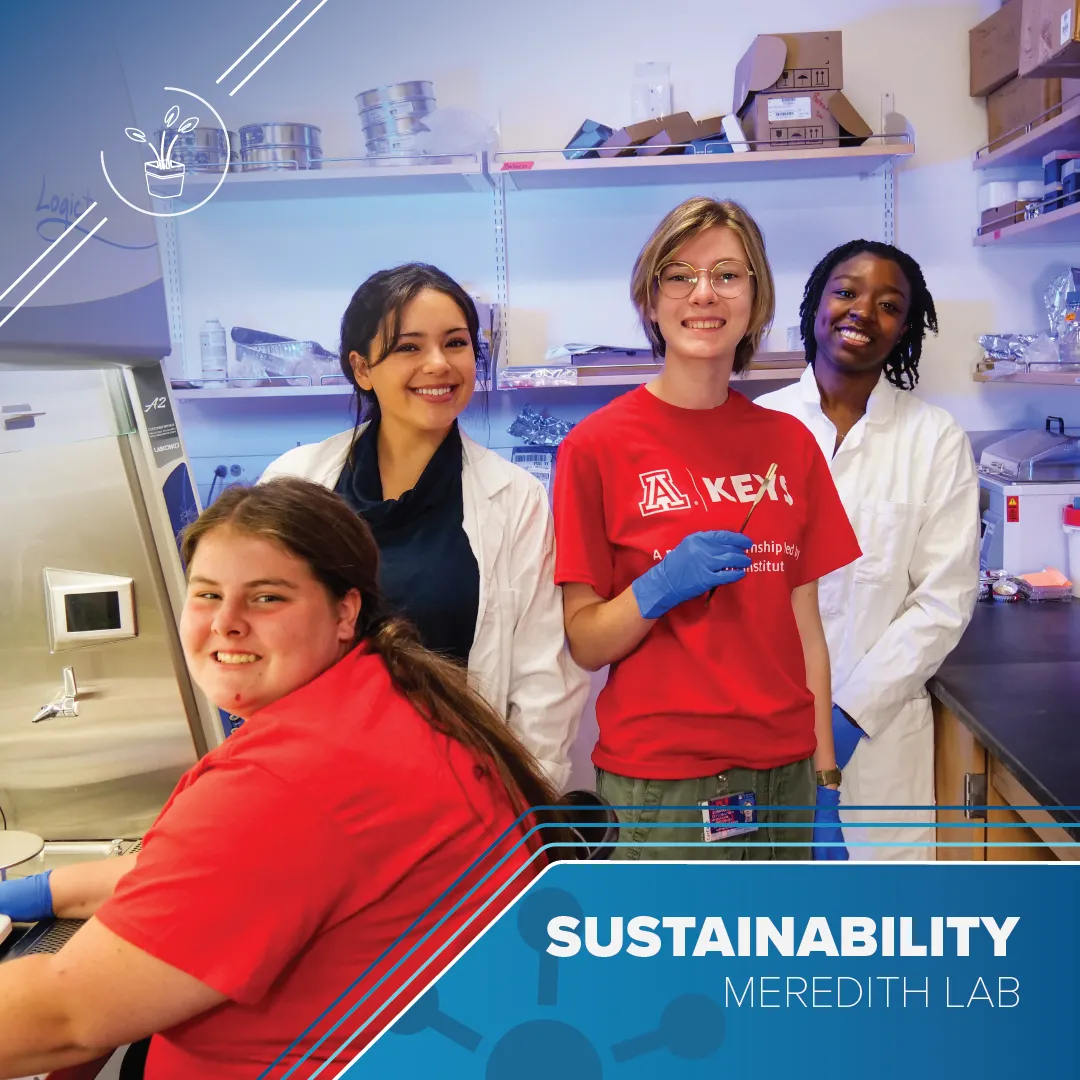
Water scarcity is a critical issue, especially in the state of Arizona.
Looking at soil health and considering our infrastructure are two pieces examined in the the lab of Dr. Laura Meredith, assistant professor in the University of Arizona School of Natural Resources and the Environment and BIO5 member.
“We want to understand how we can change the landscape to better save those portable water resources, from capturing monsoon rainfall, building green stormwater infrastructure and planting trees.” said one of the KEYS mentors Dr. Vanessa Buzzard (she/her).
Two 2023 KEYS Interns are helping out with water and soil health-related projects.
KEYS intern Annabel Close (she/her) analyzes the biological, chemical and physical properties of soil from different rainwater harvesting sites with Master’s student Phoenix Spivy (she/her), an important part of understanding what green infrastructure is the most helpful and safest.
“Environmental issues are one of the biggest challenges my generation faces,” said Annabel.
Working with UArizona undergraduate Renata Martin (she/her), KEYS intern Lauren Pfaff (she/her) assists with different soil management techniques to see what works best for watering trees in Arizona.
“I feel like I am here to help people. Science or agriculture will likely be how I do it,” said Lauren.
5. Analyzing trends to help doctors
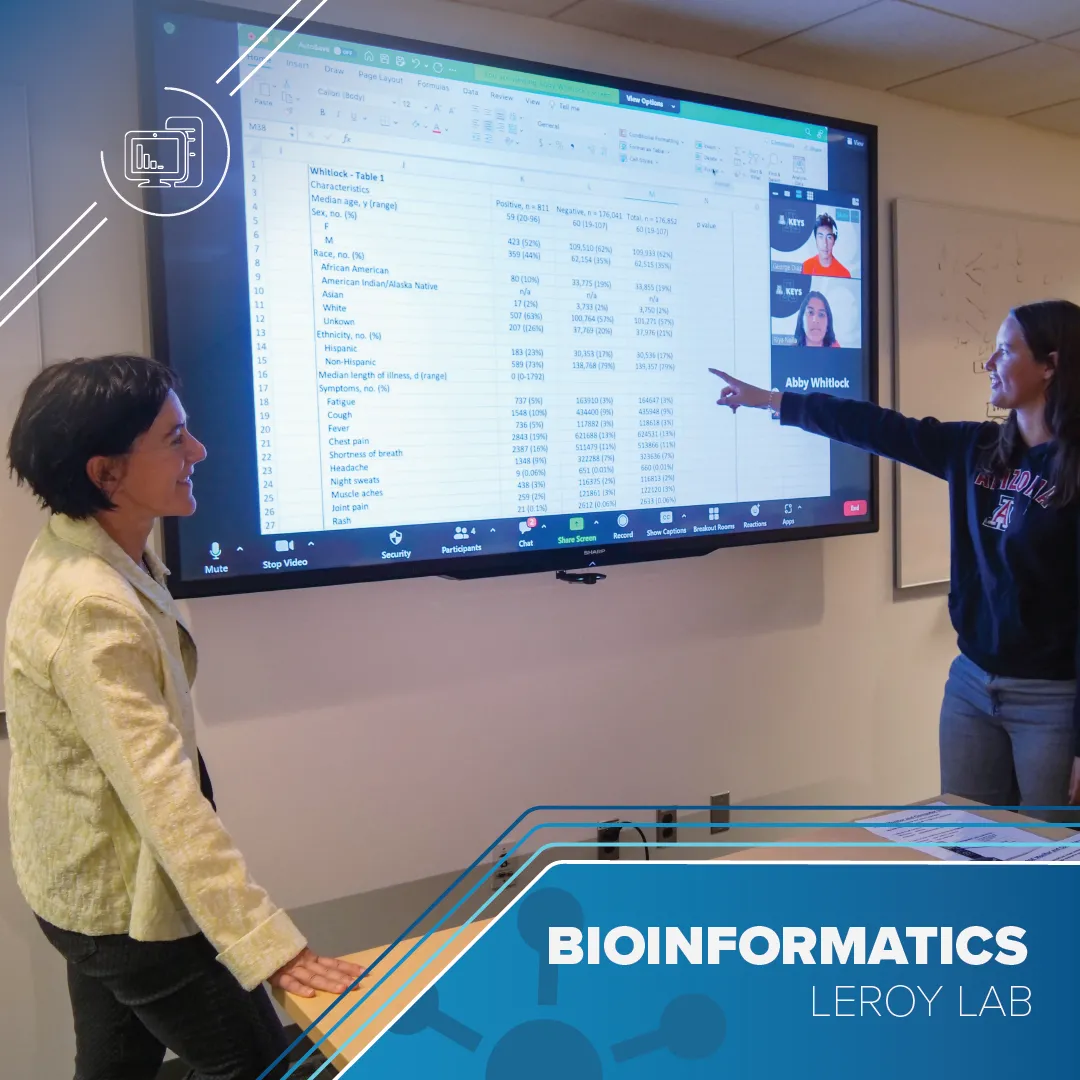
Digging into data can help better diagnose disease.
An example is Valley fever, a fungal disease that is often misdiagnosed until it is too late. Dr. Gondy Leroy, professor of management information systems in the University of Arizona Eller College of Management and BIO5 member, and her lab analyze electronic health records to see if they can recognize trends in the disease and its diagnosis.
“We use natural language processing and machine learning to help the medical field,” said KEYS mentor Dr. Leroy (she/her).
Two virtual 2023 KEYS Interns, George Diaz (he/him) and Riya Nalla (she/her) work with UArizona undergraduate researcher Abby Whitlock to learn Python, a programming language, that will help them analyze datasets.
“At the very least, I want to say that I’ve changed society for the better,” said Diaz.
Nalla added, “I want to make people’s lives easier and increase access to resources.”
6. Studying mosquitos to understand disease
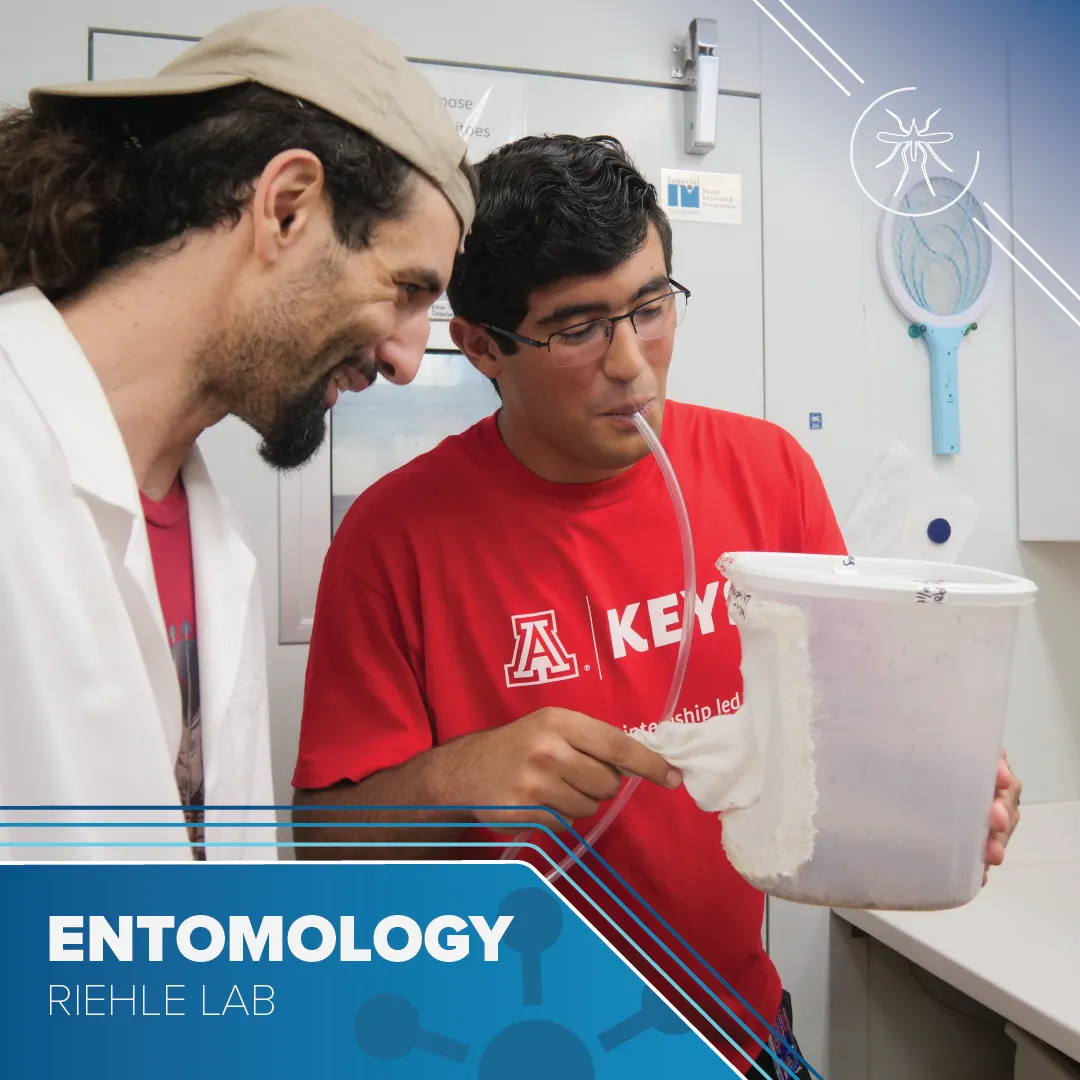
Mosquitoes sicken millions around the world each year by spreading diseases like malaria, Zika and dengue fever. Understanding insect physiology could help prevent disease outbreaks.
Dr. Michael Riehle, professor in the University of Arizona Department of Entomology and BIO5 member, and his lab develop new strategies for controlling these insects and the diseases they transmit.
“In our lab, we grow mosquitos that are incapable of transmitting malaria. Then, we use genetic tools to better understand their reproduction, innate immunity and lifespan,” said KEYS mentor and doctoral student Brendan Riske (he/him).
2023 KEYS intern Adrian Matzkin (he/him) uses spectroscopic and microscopic techniques to study mosquitoes’ feeding patterns. This sheds light on how mosquitoes feed and how pathogens grow inside of them.
“I would love to get a PhD and then help future scientists,” said Adrian.
7. Examining neurons in the brain
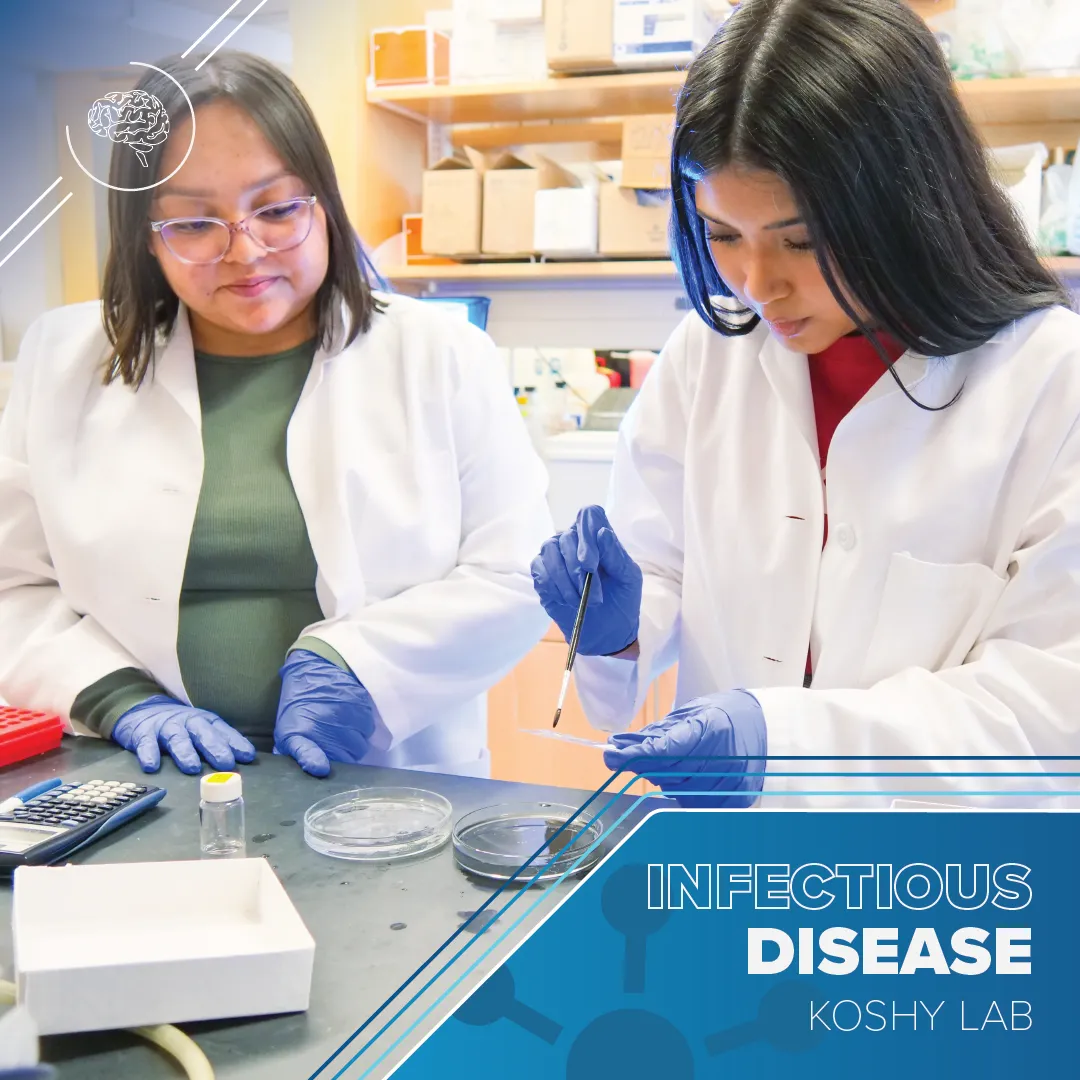
Understanding inflammation in the brain is a critical part of managing neurodegenerative diseases.
One approach is studying how the common Toxoplasma parasite avoids the brain’s inflammatory response. Dr. Anita Koshy, associate professor in the University of Arizona Department of Neurology and Department of Immunobiology and BIO5 member, and her lab hope that understanding these mechanisms will lead to treatments for conditions such as Alzheimer’s disease and stroke.
“We look at how Toxoplasma gondii interacts with the neurons in the brain. Our lab wants to provide insight into host-pathogen interactions so we can develop new cures and treatments.” said doctoral student and KEYS mentor Alison Watson (she/her).
To more closely examine these interactions, 2023 KEYS intern Diya Bhattacharya (she/her), prepares slides to look at neurons underneath a microscope.
“I want to inspire people to do research and show them that you don’t need to be a perfect student. It’s more important to be a well-rounded person and care about what you’re doing,” said Diya.
8. Using statistics to help patients
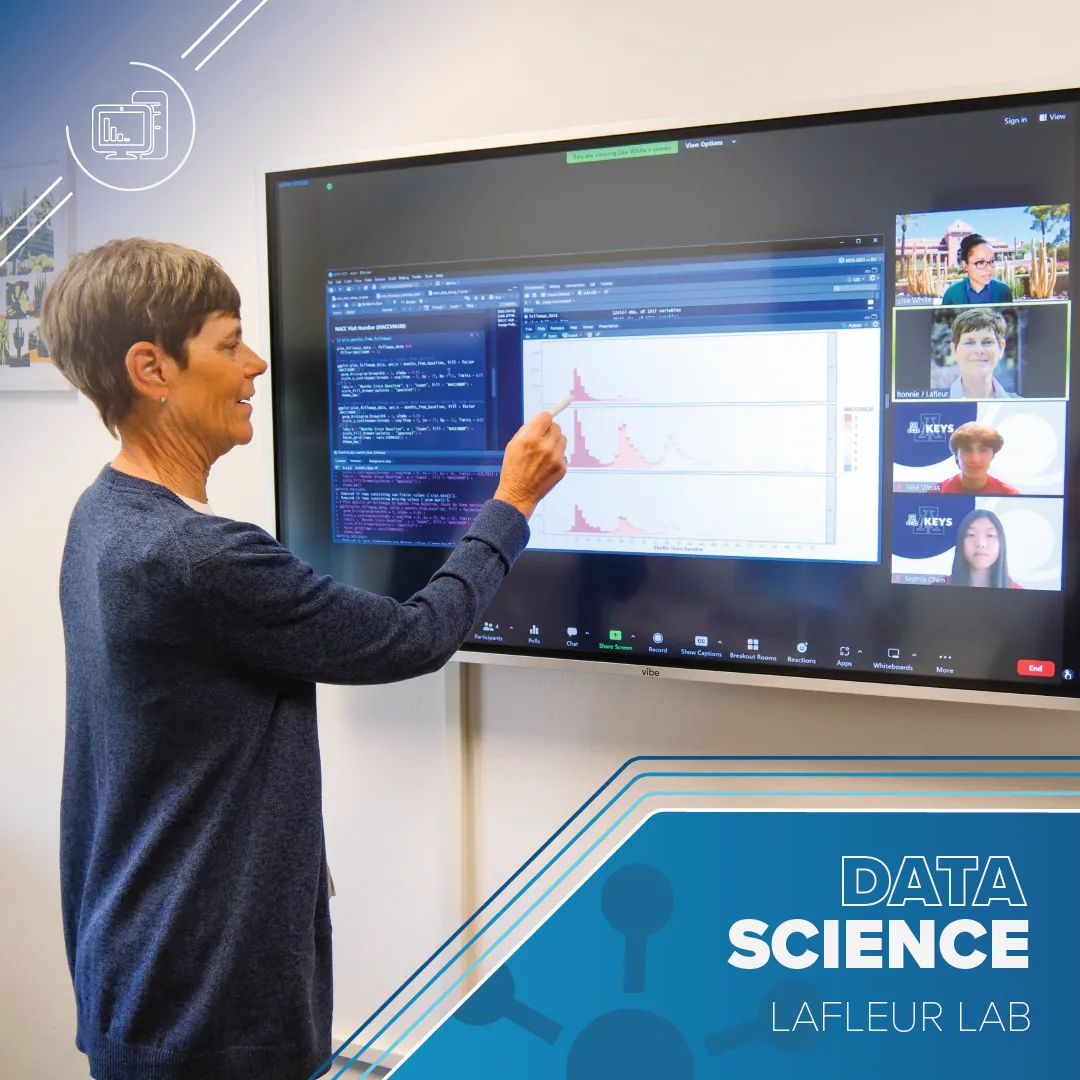
Statistics can be used to identify biomarkers, or biological signs of illness, for many different diseases.
Dr. Bonnie LaFleur, research professor in the University of Arizona R. Ken Coit College of Pharmacy, and her lab develop statistical techniques to analyze biomarkers in different populations to improve patient outcomes, from immunobiology and aging to cancer. These biomarkers can be used to intervene on the disease process early and delay progression or optimize treatments.
“Both of our virtual students are working on a National Institutes of Aging grant, the Precision Aging Network, that focuses on how we understand the normal cognitive aging process,” said KEYS mentor Dr. LaFleur (she/her).
Sophia Chen (she/her) and Jake Weiss (he/him) are analyzing publicly available datasets. Sophia is working to understand how the treatment for cardiovascular disease affects cognitive impairment, while Jake focuses on evaluating metabolomic biomarkers for the transition from normal to cognitive decline.
“No matter what I do, I want to do work that is beneficial to the public,” said Sophia.
“I’m excited to analyze real-world datasets so I can have an impact on the world,” said Jake.
9. Creating surveys to help overcome addiction
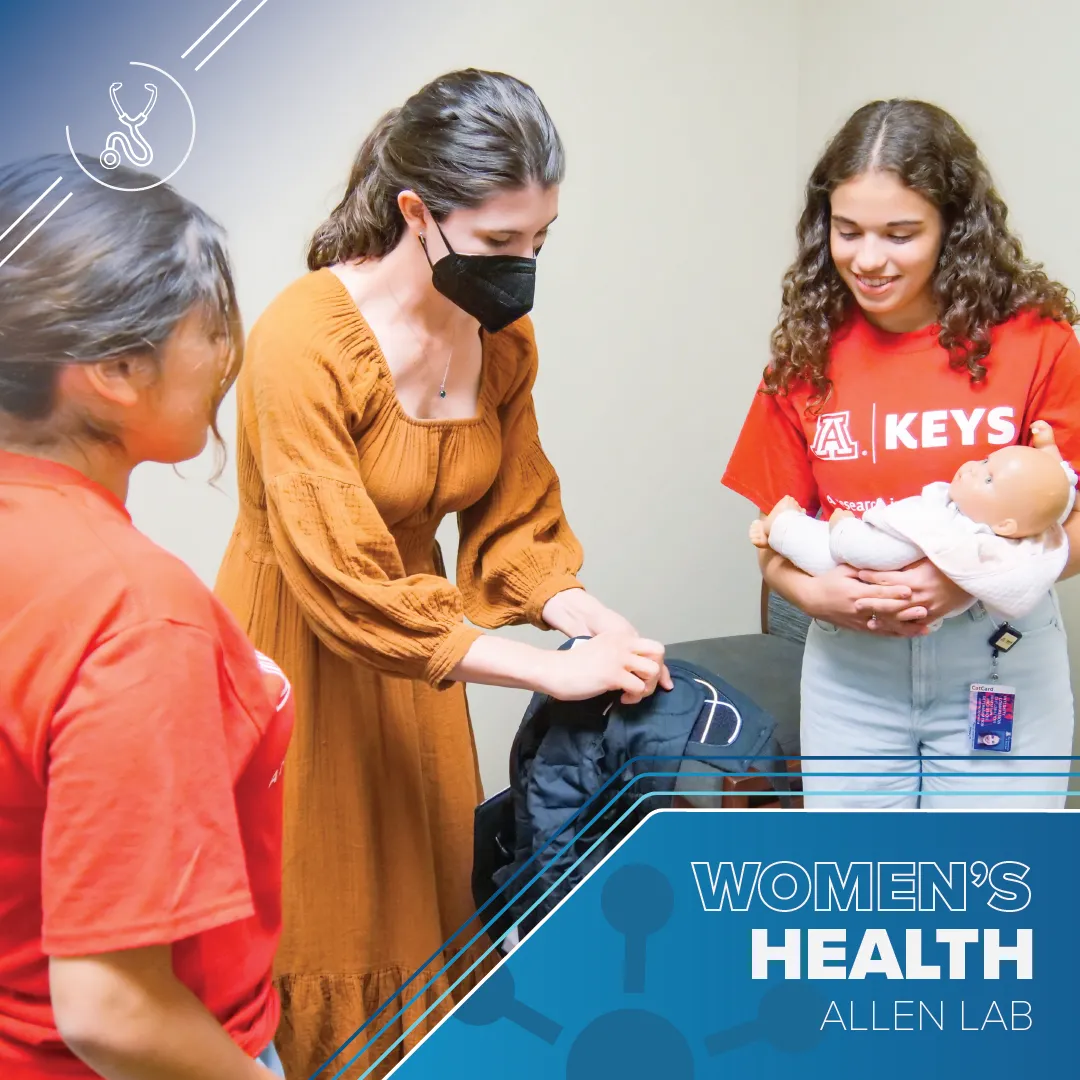
Could hormones help women avoid using opioids in the postpartum period?
This is one of the questions Dr. Alicia Allen, associate professor of family and community medicine in the University of Arizona College of Medicine – Tucson and BIO5 member, and her team wants to answer. A current study tracks hormones, mood, substance use and social support for five months following childbirth for pregnant women with or without opioid use disorder.
“Our work is about how we can support women and provide interventions. Ultimately we want to help everyone overcome addiction,” said KEYS mentor and research coordinator Alex Harris (she/her).
2023 KEYS interns Mazzy Betram (she/her) and Avery-Shalom Valencia (she/her) play a crucial role by working on satisfaction surveys for women in the study. These surveys help with the recruitment and retention of participants.
“I want to put myself in a position to help people. I take a lot of inspiration from my mom who helps women as a sexual assault nurse examiner,” said Mazzy.
“I’m Native American Yaqui and I want to help my community, especially people who suffer from addiction,” said Avery-Shalom.
10. Developing small microscopes
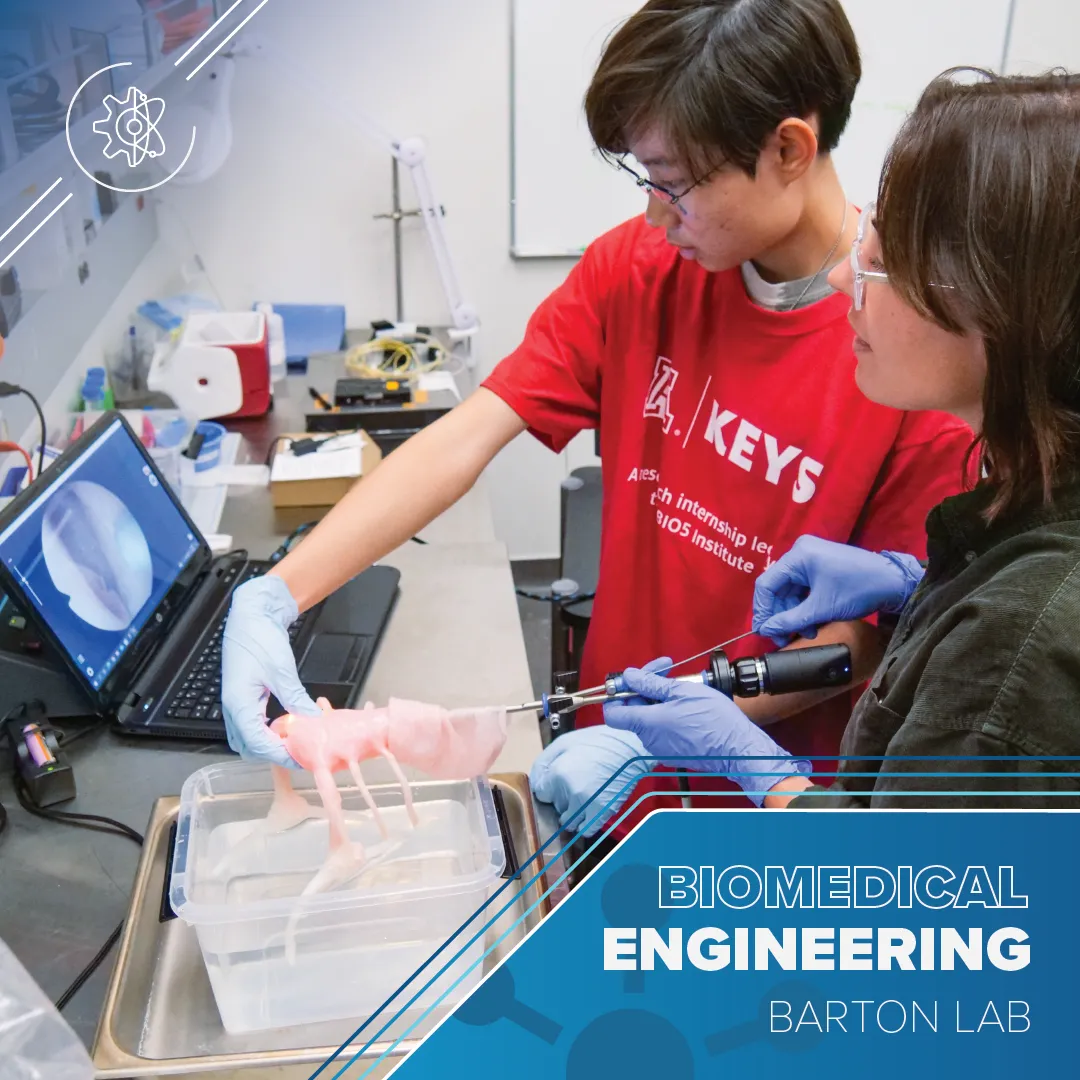
Developing noninvasive techniques to detect disease greatly improves a patient’s comfort and outcome.
Endometriosis, a painful disease in women where uterine tissue grows outside the uterus, affects 10% of reproductive age women globally, the World Health Organization estimates. However, a noninvasive procedure to identify it doesn’t exist. Dr. Jennifer Barton, professor in the University of Arizona Department of Biomedical Engineering and director of the BIO5 institute, and her lab specialize in building very small microscopes to better detect disease.
“The goal is to have a minimally invasive procedure that can be done in an office setting,” said MD/PhD student and KEYS mentor Dilara Long (she/her).
As part of that research, 2023 KEYS intern Andrew Kang (he/him) compares tissue images that will help the lab better visualize the differences in women with and without endometriosis.
“I want to do research that helps a lot of people, like increasing cancer survival rates,” said Andrew.

